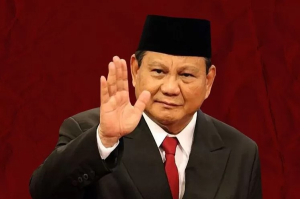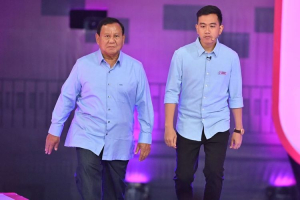Economists criticize President's use of personal funds for nutritious meal program
Economists have criticized President Prabowo Subianto for using personal funds to finance the free nutritious meal program, which has the potential to be non-transparent and create a conflict of interest.
Nuri Ikawati, Public Policy Researcher from the Institute for Demographic and Affluence Studies (Ideas), cited that Prabowo had previously used his personal funds for various activities such as the Red and White Cabinet Retreat.
Previously, Prabowo had distributed Rp100 thousand (US$6) in cash to residents in Babakan Karet Village, Cianjur through Maruarar Sirait, the Minister of Housing and Settlement Areas.
According to Nuri, the use of personal funds for the free nutritious meal program is considered less transparent, even though the intention is good. She emphasized that the state should prioritize the use of the government budget so that it is easier to monitor in terms of transparency and accountability.
"The state must adhere to the principle in administering the government to prioritize the use of the government budget," Nuri said on Thursday, January 9, 2025.
She stressed that although the intention is good, the use of personal funds in the program needs to be studied more deeply so as not to create a confusing precedent in public financial governance. Moreover, this program will involve various implementing partners from other sectors, which risks causing irregularities in the partner selection process.
"The public must also get an explanation regarding the free nutritious meal budget, including operational costs and production costs per serving of food that reflect balanced nutritional status," she added.
She also reminded that if there is a budget reallocation from other strategic programs to cover the budget shortfall for free nutritious meals, the government is obliged to provide an explanation to the public about the consequences of the change in budget priorities.
Conflict of interest
Muhammad Saleh, a legal researcher from the Center of Economic and Law Studies (CELIOS), said that the use of personal funds for state programs risks creating conflicts of interest such as for political interests or personal image.
Saleh cited that this action reflects the government's failure to ensure timely and appropriate budget allocation.
"The use of personal funds to finance government programs can weaken the principle of checks and balances in managing state finances," he said.
He advised that if there are administrative obstacles in the use of official budgets, the government should seek legal solutions, through budget revisions and bureaucratic acceleration.
"State finances must be managed legally, in a structured manner, and accountable to the public," Saleh said.
Public trust
Saleh assessed that the use of personal funds by officials could create a bad precedent from a good governance perspective.
"This bypasses existing formal mechanisms and (it) signals that violations of administrative rules can be tolerated for pragmatic reasons," he said.
He said further that every government official's actions in the context of rule of law must comply with the General Principles of Good Government (AUPB) which are regulated in Article 7 paragraph 2 of Law No. 30/2014 on Administrative Governance.
"Violation of this principle not only damages public trust, but also damages the legitimacy of the government institution itself," Saleh concluded.
Already have an account? Sign In
-
Start reading
Freemium
-
Monthly Subscription
30% OFF$26.03
$37.19/MonthCancel anytime
This offer is open to all new subscribers!
Subscribe now -
Yearly Subscription
33% OFF$228.13
$340.5/YearCancel anytime
This offer is open to all new subscribers!
Subscribe now






